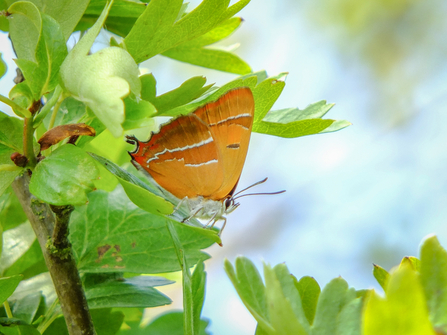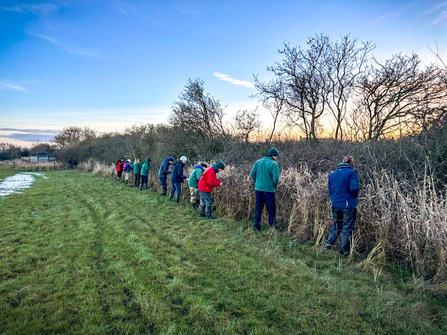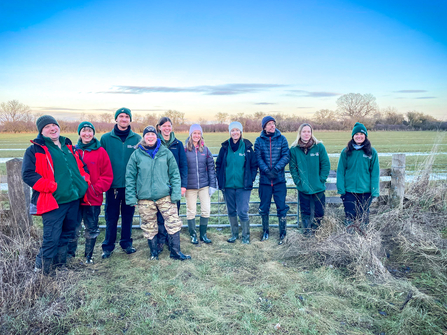There's looking for a needle in a haystack, then there's looking for a butterfly egg in a hedgerow – in the freezing cold.
That is how 15 nature lovers started their year in an important annual tradition.
The BBOWT staff and volunteers spent four hours in icy weather on Tuesday hunting for the tiny, ball bearing-sized eggs of the rare and beautiful brown hairstreak butterfly.








